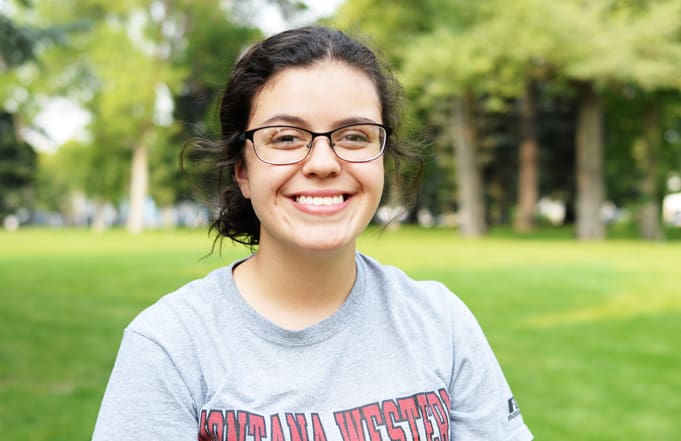September 14, 2017
As a part of her senior project, Miranda Martinez created an oral history project based on interviewing teachers at rural schools. Their personal accounts helped shape the path she’s on today.

By its very nature, oral history is intimate. Martinez described it as “looking at history on a more personal level. It’s not a broad overview. It’s not the dates in textbooks that people think about when they hear history.”
Oral history is spoken accounts of events told by the people who were there. Martinez wanted to know what it’s like to teach at a rural school. These are defined as schools with a total enrollment of less than thirty students.
Martinez grew up in Idaho Falls, Idaho. Her high school had a student population comparable to the University of Montana Western. In her paper, she compares her experiences at an “urban” school to the accounts of the teachers she interviewed.
Martinez wrote: “During each of my interviews I asked what seemed to be the biggest difference between urban and rural schools. The overwhelming answer was the connection that teachers and students had.”
Marcy Busch taught in Melrose, Mont. for several years. In her interview with Martinez, she talked about some amazing ways she was able to affect her students’ lives that wouldn’t be possible at a bigger school:
“In an effort to help her students succeed, Marcy would often come to school with a coat that she would claim didn’t fit her or her husband, or say she made too much soup and needed help eating it so that she could provide some care for her students without them feeling like a charity case.”
Jack Hutchison was a teacher and football coach in Lima, Mont. He talked about how sports play a key role in rural communities:
“Jack pointed out that the school remained the center of the community. Sports have a way of bringing the young and the old together to celebrate the town. In a small town, sports provide a source of entertainment for everyone,” Martinez wrote.
Martinez has first-hand knowledge of the transformative powers of sports. She’s the assistant cheer coach for Beaverhead County High School.
She said: “Cheerleading is a great opportunity for students to gain more confidence and to express themselves. You’re putting yourself out in front of the student body completely free to judge you. You don’t have a game to prove yourself, no win-loss records. It’s a different way for them to develop their own personality and take pride in something.”
After conducting her research, Martinez decided her goal is to one day teach at a rural school while also coaching.
Along with her interviews, she read literature about the differences between urban and rural schools. She found that disciplinary problems are less pronounced in rural schools. The smaller class sizes also gives teachers the chance to adapt their teaching style to best help individual students.
Martinez felt that rural schools had more in common with the Experiential Learning that takes place at the University of Montana Western which she appreciates:
“I’d like to build a real relationship with my students and their parents. A smaller school provides me with that opportunity.”